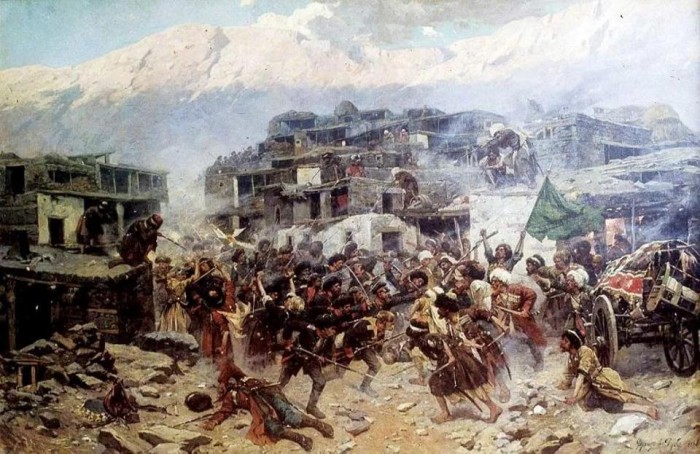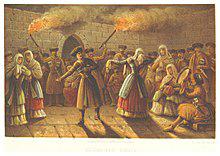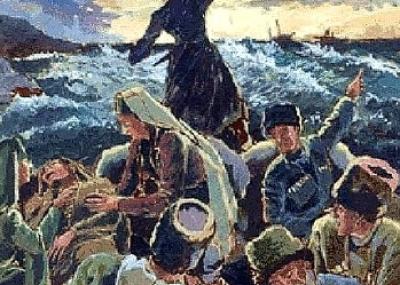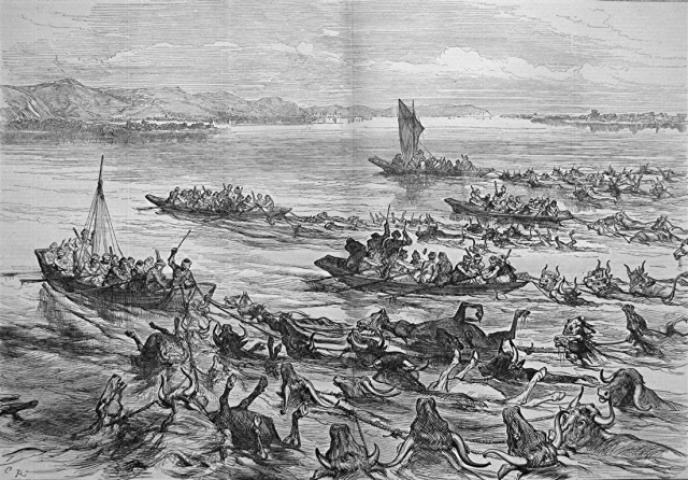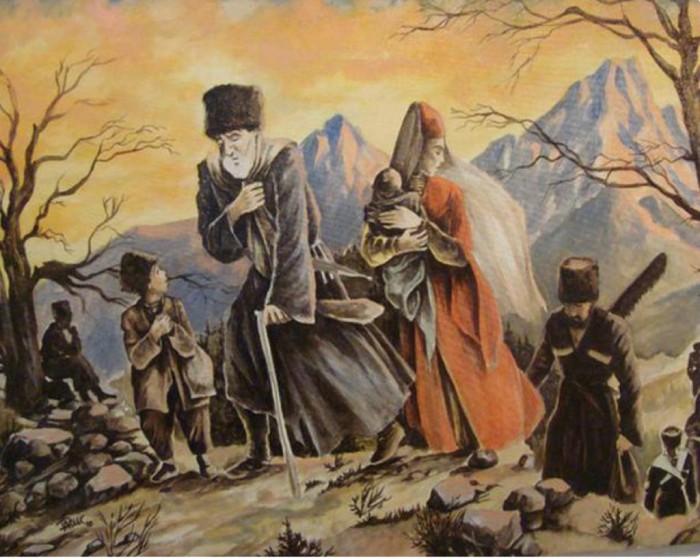Circassian Forced Deportation
By: Adel Bashqawi.
10 April, 2021
By definition of a migrant or an immigrant, it is possible to know the means used to address any issue, regardless of its size or influence. It is necessary to know the rules related to studying the factors affecting the concept in order to be able to be solved.
“As international migration has moved to center stage in political, policy, and public discussions in countries around the world, it is important to have a sense of who exactly these conversations are about. Simply put, an immigrant is a person living in a country other than that of his or her birth. No matter if that person has taken the citizenship of the destination country, served in its military, married a native, or has another status—he or she will forever be an international migrant.” [1]
The Circassian Displacement
It is unpalatable, and even disgusting to remember forcing the majority of the Circassian people in groups of individuals, families and in masses, which consisted of the majority of the nation, to be deported in the nineteenth century, which can not be described except that it is forced displacement from the Circassian homeland. It emerged as a result of a war of annihilation, ethnic cleansing. Tragedies suffered by the tormented nation cannot be considered but forms of prejudice, hatred, blind racism, racial superiority and discrimination. Not to mention the colonial greed of occupation and annexation of Circassia to be deemed as part of the Russian empire of the nineteenth century.
Almost nearing 157 years from forced deportation, a real solution to solve this element of the Circassian Question has not been puzzled out yet. All those who were deported to the Ottoman Empire or displaced to beyond the Kuban Basin from their original dwelling areas, need a solution to their seemingly so far incurable problems.
“UNHCR exists to protect and assist everyone who has been affected by forced displacement, including IDPs. We assume a coordination and operational delivery role in IDP situations to ensure protection is central to our work in order to prevent further displacement.” [2]
Despite the passage of this period and the lack of interest of the Russian state in showing a reasonable amount of goodwill to solve this humanitarian issue, knowing that the Circassian legitimate rights are not subject to statute of limitations, but there is indifference to the fate of an entire nation. However, indifference to the rights of the Circassian nation is the matter that no two disagree on, which must be dealt with according to the implications of the crimes committed as a result of the war, namely genocide, occupation, ethnic cleansing and forced displacement.
Back off on the Promise of Self-determination
The peoples of the Caucasus and beyond, who have been subjected to the Russian Empire, breathed a sigh of relief, when the October Revolution triumphed and the despotic regime was eliminated. Apparently, the fall of the Russian Empire, has not changed the colonial assimilation policy, even though it was temporarily paused. Thus Circassia remained part of the Soviet Union, which confirmed its removal from the map and made linguistic, cultural, social, demographic, administrative and political changes in order to change features of the homeland and characteristics of the people.
The October Revolution and the Soviet Union eventually showed their true colors, and followed a policy of hypocrisy. “The Declaration of the Rights of the People of Russia, proclaimed one month after the October Revolution on November 21, 1917, recognized four major principles:
1. equality and sovereignty of the peoples of the Russian empire;
2. the right of nations to self-determination;
3. abolition of all privileges based on nationality or religion;
4. freedom and cultural development for national minorities (i.e., dispersed nationalities and those living outside their historic territories).” [3]
Following the Russian revolution, the seizure of control of Petrograd (Saint Petersburg) by the Bolsheviks was pursued by issuing on “9 November (27 October) 1917 the Decree on the Press, the first Bolshevik censorship decree, abolishes the ‘bourgeois’ press.” [4]
The powers dominating the reins could not but to show their true colors and to reveal their hypocrite nature. Knowing that “after the official declaration of the principles, the Soviet government resisted the realization of these ideals. Even in the cases of Finland and Poland, whose right to independence was acknowledged by Vladimir Lenin before the revolution, acceptance of their independence was given by the Bolsheviks only reluctantly, after several attempts to reverse independence failed.” [5]
Expulsions According to European Court of Human Rights
The International Law and the the European Court of Human Rights, have addressed types of those collective measures taken by any invading or occupying power that affect individuals and groups of a people or nation in order to force them by various ways and means in order to leave their homeland that they inherited from their ancestors. They are eventually forced to move to regions and homelands that are not their original homelands, as a result of war, occupation, extermination, persecution and ethnic cleansing.
The issue is described and verified as: “Mass expulsion may also occur when members of an ethnic group are sent out of a state regardless of nationality.” knowing that “Collective expulsion, or expulsion en masse, is prohibited by several instruments of international law.” [6]
Conclusion
The subject has not been closed yet, as the dispute resolution procedures have not been addressed to settle the elements of the Circassian Question, including the right of return to the original homeland, which has a solid basis in international law, in light of the well-known acquisition policies. It wasn’t possible for the Circassians to catch up on due process rights that should be addressed. However it’s regrettably going in a context with a reverse pattern of truth and logic, because there is no will to deal with the subject objectively by the successive regimes in Russia through an acceptable conflict-resolution mechanism.
References
[1] (https://www.migrationpolicy.org/content/explainer-who-immigrant)
[2] (https://www.unhcr.org/internally-displaced-people.html)
[6] (https://www.aacademica.org/andrew.scholten/9.pdf)
